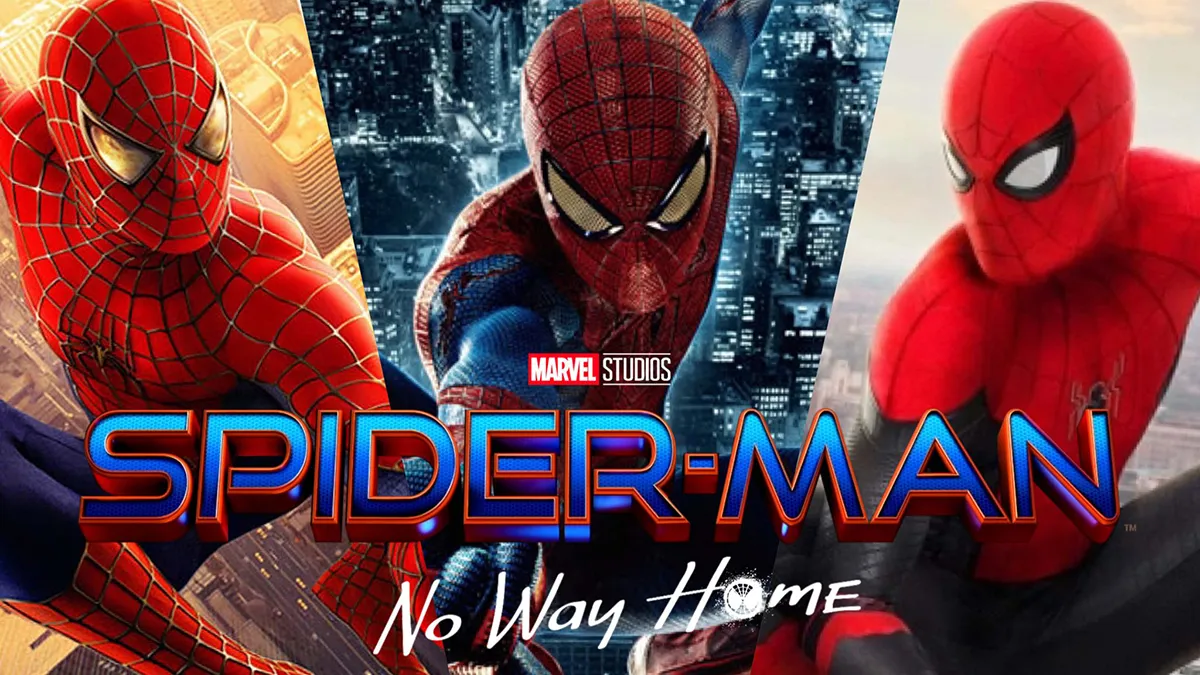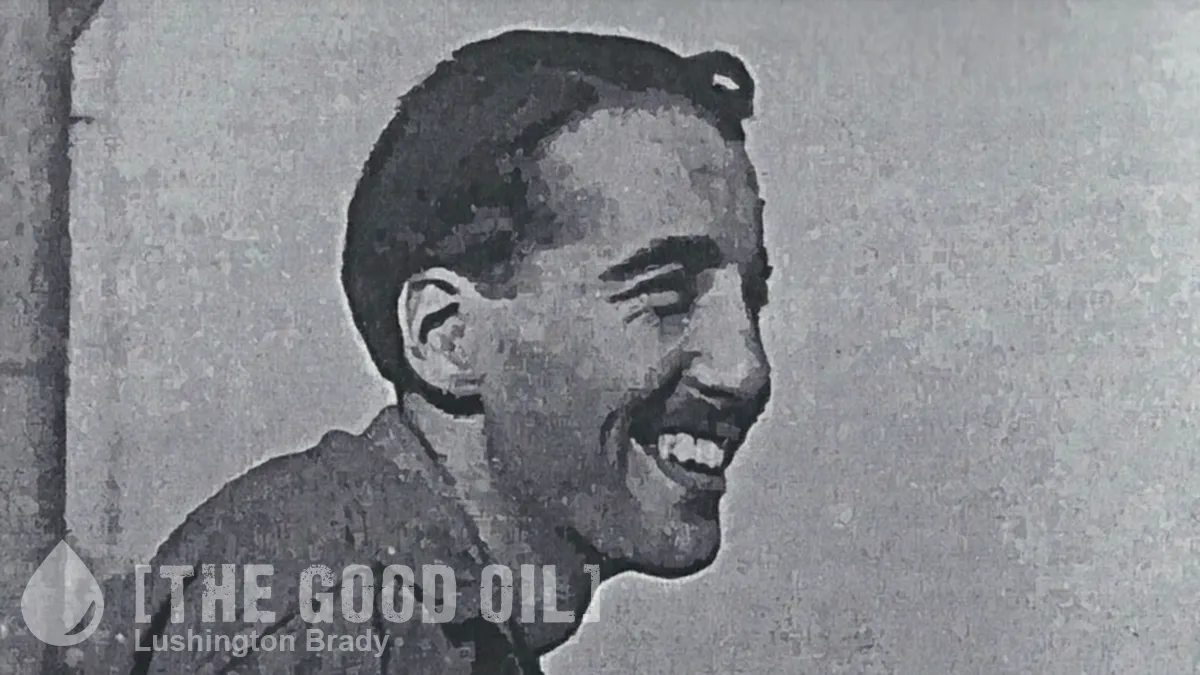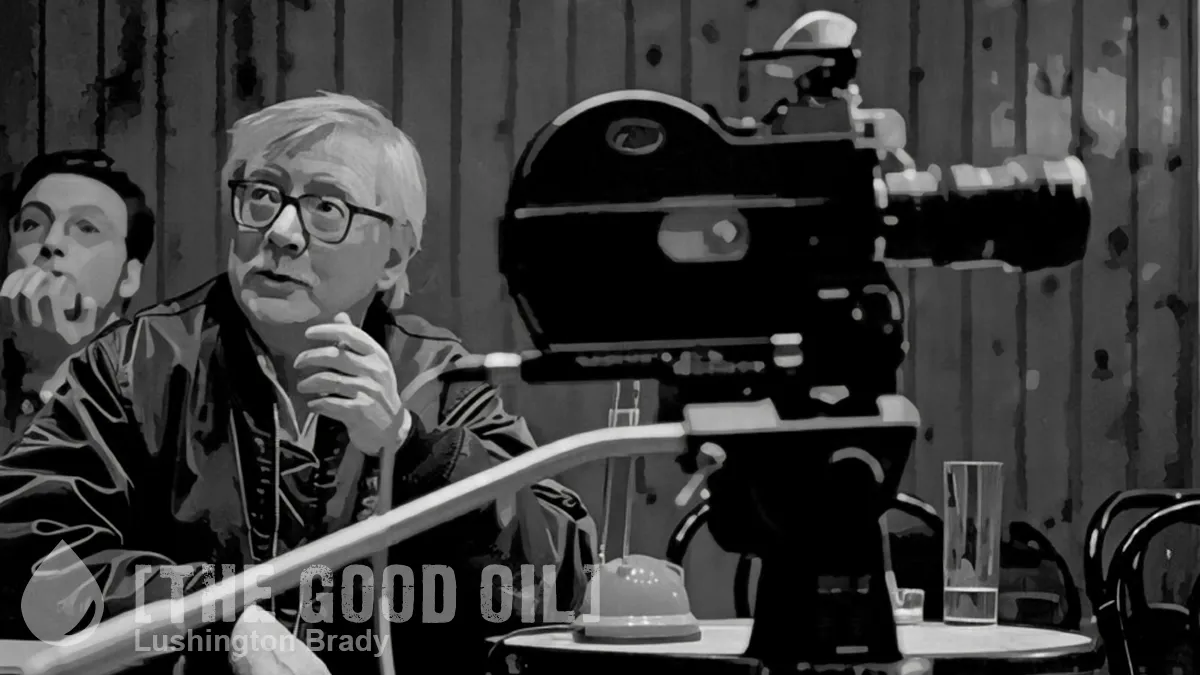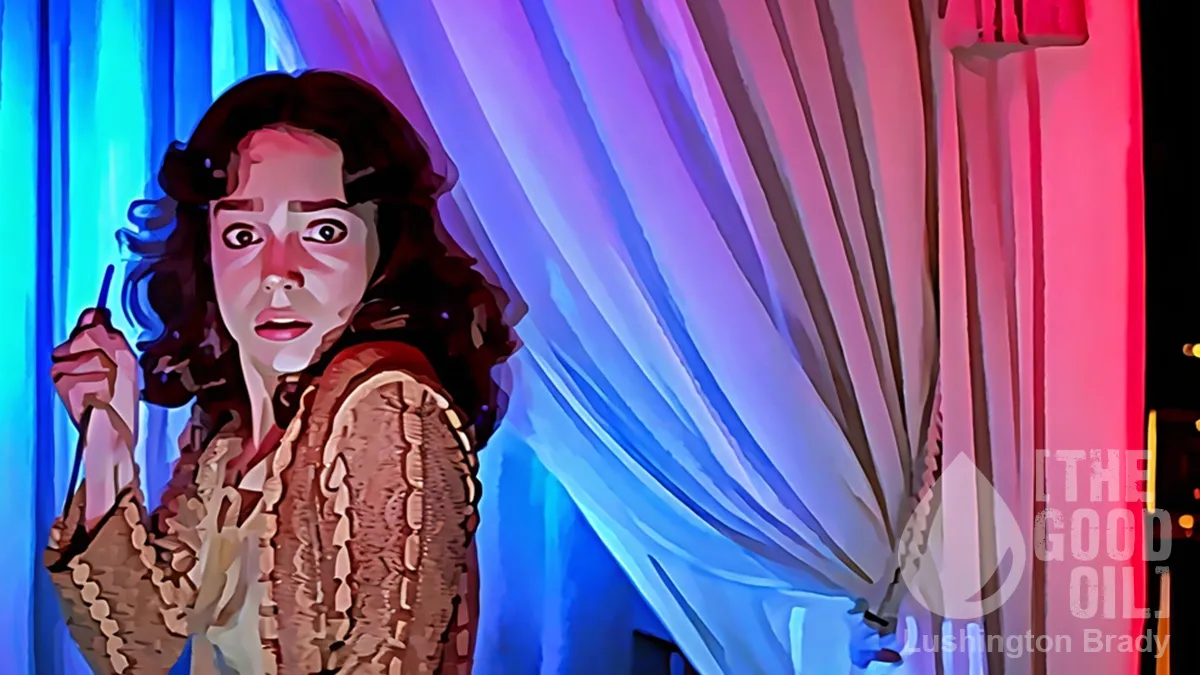Table of Contents
I’m going to have to give this movie two separate ratings: for the fans, 9/10; for non-fans, maybe a 6/10.
The reason for the disparity is that this movie is the culmination of a two-decade odyssey that kicked off with Sam Raimi’s groundbreaking 2002 superhero film, Spider-Man. From that original trilogy, starring Tobey Maguire, Spider-Man has encompassed an aborted Amazing Spider-Man duology starring Andrew Garfield (the proposed third film was abandoned after poor results from the sequel) and the Tom Holland trilogy which now climaxes with No Way Home.
In between, the Spider-Man character has been absorbed into the (so far) 27-film, 17-tv-series, Marvel Cinematic Universe. Not just one universe, mind you: a multiverse. Meaning that each incarnation of Spider-Man — Maguire, Garfield and Holland, not to mention a host of other Spider People who’ve shown up in the animated Into the Spider-Verse — exists in his own right in a separate universe.
That’s a lot of baggage for any single film to cover.
No Way Home does it pretty well for the non-fans: the essential premise of the story — Peter Parker’s identity has been revealed to a world divided between seeing Spider-Man as either a super-hero or super-villain — is deftly explicated by newscasts and voice-overs in the first few minutes. The difficulty for non-fans is comprehending a cast of five major antagonists, six or seven major protagonists, and a gallery of dozens of minor characters.
That’s a lot for any casual viewer to deal with, but for the fans, it’s one pay-off after another.
To recap the story without major spoilers: Peter Parker’s identity is revealed, making him famous (and infamous) overnight. Not just his life, but his closest friends, are turned upside-down. In desperation, Parker turns to the wizard-like Doctor Strange for help, begging him to undo his exposure. But Strange’s spell goes awry, opening his particular universe to the entire multiverse of Spider-men. The immediate result of this is that villains from the other Spider-Man films suddenly appear, determined to wreak their vengeance on “Peter Parker”, only to find that Peter Parker is not the Peter Parker they knew and battled.
Doctor Strange offers to repair the damage and send the villains back to their respective universes. But Parker realises that this effectively means sending them to their imminent deaths. Thus begins the core moral dilemma of the film: can Peter Parker not just kill villains, but save them?
For my part, the original Raimi trilogy is easily the best, mostly because of the strength of its villains. The Green Goblin, Doctor Octopus and Sandman were not just cardboard cutout bad guys, but fleshed-out, three-dimensional, tragic characters. None of them were actually evil: rather each, was an essentially good person whom circumstances turned to evil things.
This is No Way Home’s great strength: its emotional core. Characters like Doctor Octopus are given their shot at redemption. The actors, especially Alfred Molina (as Doc Ock) and Willem Dafoe (as Norman Osborne/Green Goblin) rise to the challenge. Dafoe in particular pulls out all the stops in portraying the lost, bewildered Osborne, who knows that someone inside him has done terrible things, but he has no idea what or why.
No Way Home also redeems Andrew Garfield’s aborted Amazing Spider-Man. The most despised Spider-Man actor finally gets his chance to show how much his portrayal was fatally hobbled by poor writing and direction. Garfield owns easily the most moving scene in the entire film. In general, too, the chemistry between the three generations of Spider-Man is as obvious and enjoyable as, say, Keanu Reeves and Alex Winter’s Bill and Ted.
To be honest, I’m not a huge fan of the Marvel Cinematic Universe. But then, neither is my favourite YouTube critic, The Critical Drinker. Yet, he gave No Way Home the highest praise. I’m inclined to agree. (The Drinker even gives Zendaya, as MJ, a thumbs-up, and if you know what the Drinker thinks of Zendaya, that is fulsome praise indeed.)
As the Drinker also notes, the movie is astonishingly free of Hollywood’s bog-standard woke-ism: the mention of a “black Spider-Man” is an in-universe reference to a long-standing incarnation of the character, Miles Morales, while the visual gag comparing J. J. Jameson to Alex Jones is genuinely funny.
I often say that Super-hero movies are the Westerns of the early 21st century. That is, they’re reliable popcorn-fodder that studios churn out by the dozen. Most are entirely by-the-numbers, forgettable affairs that are practically indistinguishable from one another. But, for every The Man From Laramie or Apache, there’s the handful of iconic classics: The Searchers, True Grit, or Red River.
Spider-Man: No Way Home definitely belongs in the latter category.









